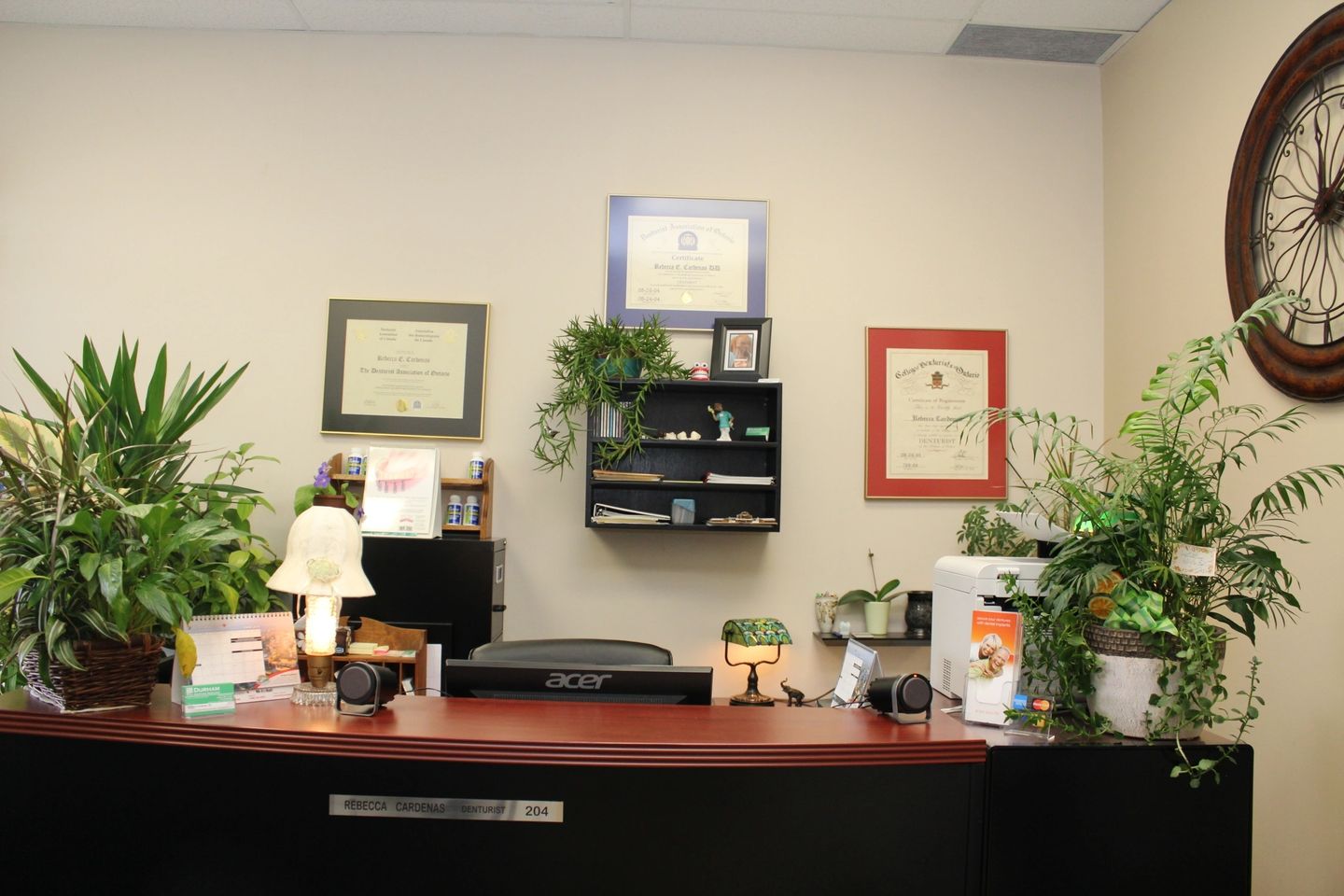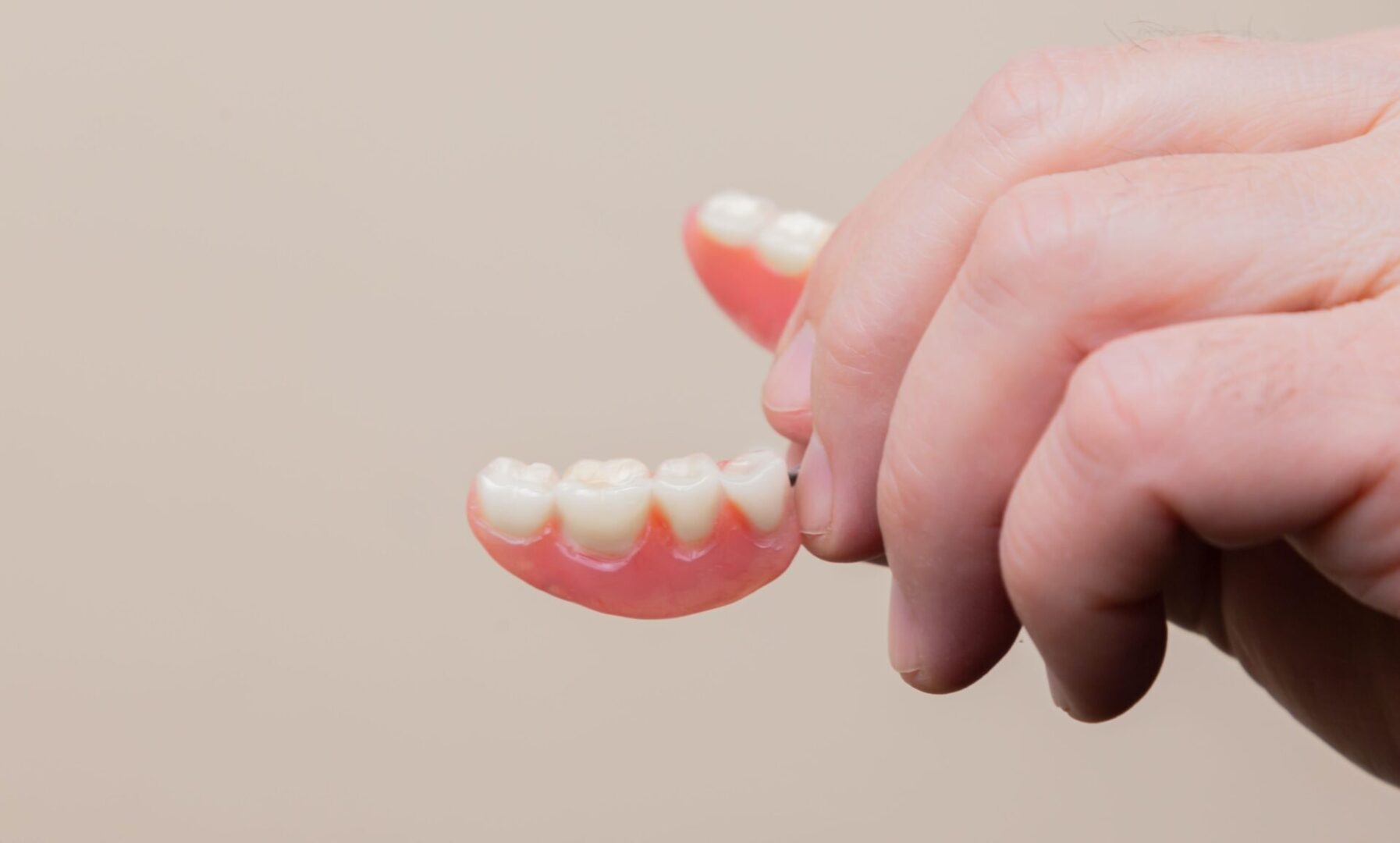Relines
A reline is a procedure done to your existing dentures (either complete or partial dentures) when the anatomy of your false teeth are still good (not worn down) but the fit is loose. Once teeth are extracted, it is the natural course of things for your gums to shrink over time. For some people, it happens quickly and significantly. For others, it happens minimally and gradually. Either way, eventually this shrinkage causes your dentures to become so loose that you have trouble keeping them in your mouth securely while you eat. This lends itself to increased denture mishaps such as denture fractures, sore spots, embarrassing moments, or trouble with digestion as ability to chew properly diminishes.
Some people resort to wearing denture adhesive (such as Poligrip or Fixodent) to alleviate the problem, but with time, even that won’t help enough. A reline is a good remedy for such situation and it is more cost-friendly than replacing the denture. This is only a good alternative though when the denture teeth are still in good shape. Relining a denture with flattened, worn down teeth defeats the purpose of a reline because you are only modifying the fit, not the function of your denture(s).
Rebase
A rebase is the replacement of the “pink part” of your dentures --in other words, you’re changing everything other than the teeth of your denture. This is typically done when your denture teeth are still in great shape but the rest of it is breaking down or in need of refreshment. Sometimes the pink part has discoloured grossly with time or after several modifications throughout the years, it has become too heavy, too patchy, unsightly or unhygienic.
An Over Denture
This is a denture fabricated to be worn overtop of existing teeth that are very small or only partially there (such as a root tip or the “leftovers” of a failed crown or bridge). These remaining teeth are too small to have an aesthetic appeal to them yet still serve the purpose of remaining in your mouth. These teeth help to maintain “alveolar bone” which is much needed to help make wearing dentures a successful experience. When the alveolar ridge (bone) is diminished, there is not enough support for the denture and this creates loose, difficult-to-wear dentures.
Implant-Retained Dentures
As the name implies, these are dentures worn overtop of implants. Contrary to popular belief, implants do not have to be placed for each tooth being replaced. To give a quite common example, many people who wear a complete lower denture have trouble with retention. Their denture moves around a lot, making eating a very difficult experience. This movement of their complete lower denture causes sores and food to trap beneath it, causing so much frustration that they finally seek a more desirable solution – implants! For a lower ridge, to replace all of the teeth, most people can solve their issues with just two implants.
A complete lower denture is then fabricated (or if they have a “still good” lower denture, it can be converted), and placed overtop of the implants. With components placed into the denture, it can now be “locked” into their jaw so that the denture is now solidly in place. Implant-retained dentures are also known as “implant over dentures” or “implant supported dentures.” One does not have to be missing all their teeth to still benefit from having an implant, or implants placed. The procedure of placing the implant in the bone is itself done by a dentist or oral surgeon. The “restoration” part of it, (having the denture made and placed), can be done by a denturist, from beginning to end.

DENTURISTS WORK WITH DENTISTS AND ORAL SURGEONS ON A REGULAR BASIS TO DELIVER QUALITY DENTURES TO THE PUBLIC. ONE DOES NOT HAVE TO FIRST SEE A DENTIST IN ORDER TO SEE A DENTURIST. MANY PEOPLE HAVEN’T GOT A DENTIST, NOR HAVE EVEN SEEN ONE IN A VERY LONG TIME . . . .
This may be due to a fear, past experience or any other number of reasons. If you don’t know where to begin, but know it is time to have some or all or your teeth replaced, you may begin by coming to visit a denturist. This is not uncommon and many, if not all denturists, know a dentist they can refer you to. You may need some teeth restored, or some hygiene done, some extractions, x-rays or any other service or procedure done that requires you to visit a dentist. Whatever your own personal situation be, know that every situation has a solution and the right team of people will only be too happy to listen to you, work together with you and include you through the entire process so that in the end, your needs and expectations are met….perhaps, even exceeded!
At Durham Full Denture Services, it is our priority to serve you and make you happy, all the while putting the utmost care and personal touch into your treatment.

